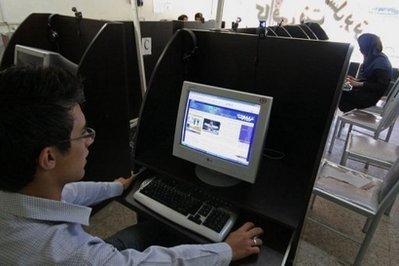Iran has launched an online police unit

More and more countries, or rather, governments, are engaged in the formation of special police units that search for hackers, all sorts of online pedophiles, website owners whose content does not comply with the law and other similar things. Of course, politicians say that all this is done for the good of their own citizens - and most likely, in some countries this is true. However, most Internet users are unhappy with this situation, many believe that such police units are engaged in spying on users. Whatever the case, Iran’s own Internet police unit has been launched in Iran.
According to the country's leadership, these policemen will confront Internet criminals and monitor social networks, where there have been cases of leaks of intelligence information about Iran. In general, it is not entirely clear what the Iranian authorities understand by the term “Internet criminal”. Whether it is the users who spread all kinds of information about Iran, which does not comply with the law, or really the criminals who hack sites to steal user information, sell drugs, distribute malicious software and so on.
')
Currently, the Internet police unit operates only in Tehran, and by the end of March such units will appear in other localities, large and small. The intentions of the police can be understood from the message of the head of the Iranian police Esmaeli Ahmadi Moghaddam: "In social networks large anti-revolutionary groups and dissidents gather, who find each other and communicate with representatives of other countries, plus they plan riots."
Indeed, now in Iran, most opposition representatives communicate in social networks, such as Facebook and Twitter, sharing information about events in the country, coordinating protest actions, communicating with foreigners supporting the Iranian opposition.
Now similar units of the "police" work in China, Korea, India and some other countries. Now Iran has been added to their number. As if some of the CIS countries also did not create the corresponding "bodies" (of course, unofficially, monitoring is conducted in Belarus, Ukraine, Russia, but so far no one has declared the creation of an "Internet censorship" unit).
Via yahoo
Source: https://habr.com/ru/post/112412/
All Articles